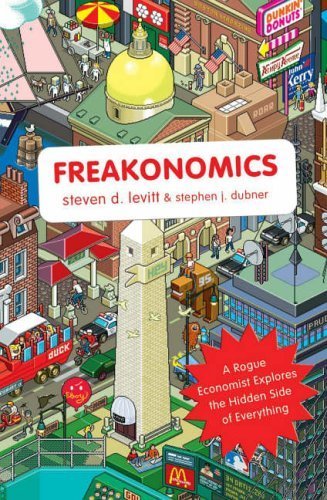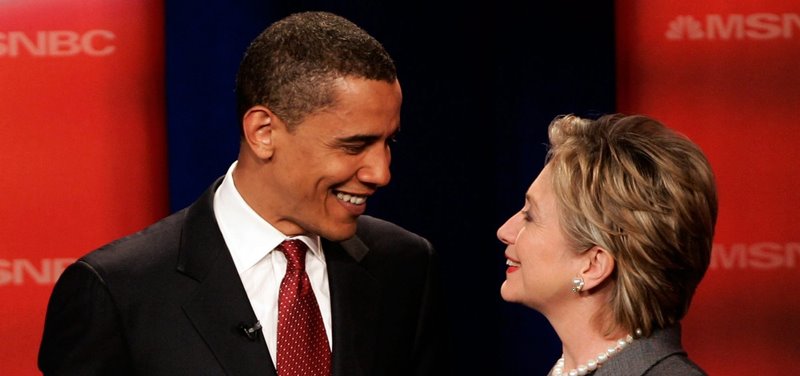Freaknomics demonstrates that academic ideas can be disseminated to the masses by being controversial, engaging and read-able.
Steven U. LEVITT is exploring Causal Relationships that Have Become Conventional Wisdom. He wants to disprove them as spurious. Demonstrate other intervening variables. Levitt wants to discover what causes what: more police causes move murder….for example? His goal is to find causal relationships that he believes are more likely to explain phenomena. Stripping away the surface layer of a subject. This is an academic exploration using data.
• Incentives are the corner stone of life.
• Conventional Wisdom is often wrong.
• Dramatic effects have subtle causes.
• Morality is greatly influences by economics.
• Experts use informational advantage to serve their own agenda.
• Knowing what to measure and how to measure it will explain confusion.
• There is no unifying theory in Freakeconomics.
• Numbers Do Not Lie.
• Incentives need to be invented.
 Conventional Wisdom: (CW) is a term used to describe ideas or explanations that are generally accepted as true by the public or by experts in a field. The term implies that the ideas or explanations, though widely held, are unexamined and, hence, may be reevaluated upon further examination or as events unfold. The term is often credited[1] to the economist John Kenneth Galbraith, who used it in his 1958 book The Affluent Society: The ease with which an idea is understood + the degree to which it helps ones personal wellbeing = Conventional Wisdom.
Conventional Wisdom: (CW) is a term used to describe ideas or explanations that are generally accepted as true by the public or by experts in a field. The term implies that the ideas or explanations, though widely held, are unexamined and, hence, may be reevaluated upon further examination or as events unfold. The term is often credited[1] to the economist John Kenneth Galbraith, who used it in his 1958 book The Affluent Society: The ease with which an idea is understood + the degree to which it helps ones personal wellbeing = Conventional Wisdom.
 Expertise is Power: Increased C-Section -> Decrease in Births. When business is tough Doctors will ring up C Sections. The increase in C Sections is caused by a decrease in birth rates. The doctors incentive is to create employment for himself given his influence as a Doctor he can justify anything using his expertise. He may not recognize it but he has disproportionately advocated C Sections because of fiscal concerns that he has rationalized in another way. Stock-brokers churn trades. Real Estate agents trick people into bidding low. Real Estate agents will always advertise with false enthusiasms. Experts use their expertise to their advantage every time. The Abuse of Information…converting information into fear is a powerful weapon.
Expertise is Power: Increased C-Section -> Decrease in Births. When business is tough Doctors will ring up C Sections. The increase in C Sections is caused by a decrease in birth rates. The doctors incentive is to create employment for himself given his influence as a Doctor he can justify anything using his expertise. He may not recognize it but he has disproportionately advocated C Sections because of fiscal concerns that he has rationalized in another way. Stock-brokers churn trades. Real Estate agents trick people into bidding low. Real Estate agents will always advertise with false enthusiasms. Experts use their expertise to their advantage every time. The Abuse of Information…converting information into fear is a powerful weapon.

Money Buys Elections: The candidate who spends the most money usually wins. Is the money the cause of victory? It is often reverse causation in this case. For example, the candidate who gets the most donations is getting those donations because they are the most likely to win. Candidates also have to pretend as though they are going to do what they donors will be asking for at a future date, however, there are no guarantees there. People donate when the race is close and when the race is not. Any presidential candidate must have a shot at winning or else no one would donate. No one gives money to what they believe is a losing bid. In fact, that is why candidates over state their popularity and demonize their opponents so much: donations are key. The appealing candidate wins more easily; voter appeal of a candidate is expressed in monetary terms. The amount of money spent by the candidates doesn’t matter at all. A losing candidate who doubles spending will only impact their vote total by 1%, according to Levitt. What matters is who you “are not”, how much money you get. Although, money indicates who you are…. The amount of money on campaign finance is viewed by some to be far too high…a lot of money is spent but this is extremely important. To put that into perspective Americans spend more on chewing gum then their political parties. Clinton spent over 100,000 USD on each delegate during the recent Democratic Primaries in 2007-08.
Who Cheats and Why? They both cheat. People cheat when the stakes are low. Every clever person with an incentive scheme has been circumvented by those who try to beat that scheme. Cheating is a primordial act: getting more for less. The waiter who pockets his tips instead of pooling them. Social incentives are extremely powerful. The Scarlet letter is about moral punishment of adulterers. Social incentives will prevent individuals from becoming criminals. Parents at a daycare centre is another example. The incentive was a fine to pick up kids on time because parents were picking their kids up late. But this policy led to parents buying off their guilt. Washington saw that the Tea tax was a very small thing, leads to massive impact. This is another case of cheating the system leading to major change. Recently, tax revenues showed that 7 million dependent children disappeared from IRS data bases because tax payers now had to provide a social security number for those children. The result was that all the cheaters could no longer circumvent the IRS and phantom dependents disappeared: NOTE that it may also be the case that a % of those 7 million disappearing dependents was due to extremely poor people not having social security numbers.

High Stakes Testing for Schools in the US rewards: schools that improve their quality of testing get rewarded. No Child Left Behind rewards schools that have good numbers and punishes those who have poor results. This means that teachers will focus on this test; they will also emphasize the importance of tests over actual learning. It fails to address that some smart students do poorly. In France, they streamline and teach only for the tests. What also happens is that teachers will try to improve their students scores so that the school gets a higher rating. Teacher cheating is rarely punished. Teachers can inflate their student’s scores. The teachers may prepare the students for specific questions. Teachers can teach to the test questions specifically. Teachers will advise that students fill in the blanks in multiple-choice questions. Then afterwards, the teachers may erase the wrong answers and / or fill in the right ones. How do you catch a cheater? The Chicago school systems showed irregularities in test scores.








